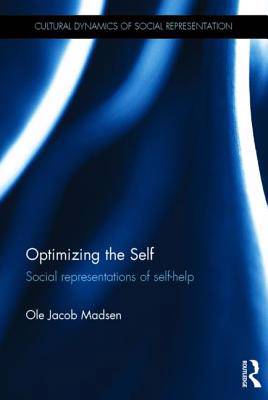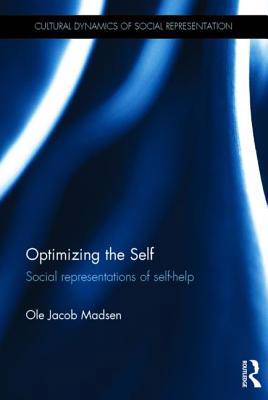
En raison d'une grêve chez bpost, votre commande pourrait être retardée. Vous avez besoin d’un livre rapidement ? Nos magasins vous accueillent à bras ouverts !
- Retrait gratuit dans votre magasin Club
- 7.000.000 titres dans notre catalogue
- Payer en toute sécurité
- Toujours un magasin près de chez vous
En raison de la grêve chez bpost, votre commande pourrait être retardée. Vous avez besoin d’un livre rapidement ? Nos magasins vous accueillent à bras ouverts !
- Retrait gratuit dans votre magasin Club
- 7.000.0000 titres dans notre catalogue
- Payer en toute sécurité
- Toujours un magasin près de chez vous
320,95 €
+ 641 points
Format
Description
This book provides an analysis of the social representations of leading self-help genres, including neurolinguistic programming, cognitive self-help therapy, mindfulness, self-management, self-esteem, self-leadership and self-control. Exploring the globalised therapeutic culture of today, the book argues that psychology as 'science' is often abandoned to aid the individual pursuit for self-realization and self-optimization. Opposing the view that self-help culture is external to psychology, Madsen argues that it is firmly embedded within psychology, playing an important role in people's lives.
Each chapter traces and critically interprets a range of self-help philosophies and techniques, examining the claims of self-help literature to represent the most innovative psychological, medical or neurobiological research. Discussing each genre in turn, chapters examine key research alongside self-help literature to explore the effectiveness and impact of leading self-help genres in various social contexts and environments. The book offers a contemporary critical overview of issues concerning self-help, combining critical psychology with the theory of social representation to provide a broad perspective on self-help as a valid psychology. Optimizing the Self will be of interest to academics, researchers and postgraduate students in the fields of social representation, critical and cultural psychology and theory, clinical psychology, and the sociology of culture and science. The book will also be of use to critical and cultural psychologists and theorists, as well as clinical psychologists.Spécifications
Parties prenantes
- Auteur(s) :
- Editeur:
Contenu
- Nombre de pages :
- 200
- Langue:
- Anglais
- Collection :
Caractéristiques
- EAN:
- 9781138909670
- Date de parution :
- 02-07-15
- Format:
- Livre relié
- Format numérique:
- Genaaid
- Dimensions :
- 180 mm x 254 mm
- Poids :
- 544 g

Les avis
Nous publions uniquement les avis qui respectent les conditions requises. Consultez nos conditions pour les avis.






